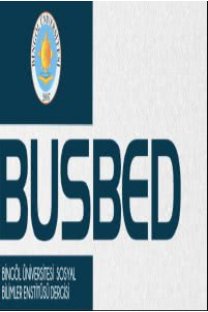KRİZ İLETİŞİMİNDE MESAJ STRATEJİLERİ: ERMENEK KÖMÜR MADENİ KRİZİNE YÖNELİK UZMAN GÖRÜŞLERİNİN İNCELENMESİ
Krizde paydaşlara verilen mesajlar, krizin paydaşlar üzerindeki etkisi ve dolayısıyla da kriz yönetiminin başarısı açısından önemlidir. Kriz iletişimi çalışmaları incelendiğinde, mesaj stratejilerini içeren teorilerin daha çok ön plana çıktığı görülmektedir. Bu nedenle, paydaşlara yönelik mesaj stratejilerinin doğru seçilmesi önemlidir. Kamuoyunu bilgilendirmeye yönelik mesajların incelendiği bu çalışmada veriler, can kaybı ve yaralanmaların yaşandığı Ermenek kömür madeni krizine (28 Ekim 2014) yönelik 33 uzmanla yapılan görüşmelerle toplanmıştır. Araştırma verileri içerik analizi yöntemiyle incelenmiştir. Elde edilen bulgulara göre; bilgilendirmenin niteliği, krizden etkilenenlerin duygu durumları, toplumun değerleri, kabullenme, tazminat ve sorumluluk konularının can kaybı ve yaralanmaların yaşandığı kriz durumlarında, paydaşlara iletilecek mesajların oluşturulmasında dikkat edilecek önemli hususlar olduğu belirlenmiştir.
MESSAGE STRATEGIES IN CRISIS COMMUNICATION: INVESTIGATION OF EXPERTS’ EVALUATIONS TOWARD ERMENEK COAL MINE CRISIS
The messages given to the stakeholders in the crisis are important for the impact of the crisis on the stakeholders and the crisis management’s success. When the studies of crisis communication are examined, it is seen that the theories involving message strategies are more prominent. For this reason, it is important to choose the right messages given to stakeholder. In this study, the data was gathered from 33 specialists by asking them to evaluate the messages that were given by the authorities to the stakeholders in the Ermenek coal mine crisis (October 28th, 2014) in which the loss of life and injuries were experienced. The research data were analyzed by content analysis method. According to findings; it has been determined that the important points that should be taken into consideration in the formation of messages for the stakeholders are information nature, the emotional state of the affected people, the values of the society, the acceptance, indemnification and responsibility.
___
- BENOIT, William (1997), “Image Repair Discourse and Crisis Communication”, Public Rela-tions Review, vol. 23, issue 2, pp. 177–186.
- BERG, Berg ve LUNE, Howard (2015), Sosyal Bilimlerde Nitel Araştırma Yöntemleri, Çev. Hasan Aydın, Konya, Eğitim Yaynıevi.
- CANPOLAT, Nesrin, ve ŞAHİNER, Nurgün (2017), “An investigation of Samsung Galaxy Note 7 Safety Crisis Based on Image Restoration Theory of Message Strategies”, The Tur-kish Online Journal o Design, Art and Communication, Vol.7, Issue 2, pp.213–225.
- COOMBS, Timothy (2007), “Protecting Organization Reputations During a Crisis: The Deve-lopment and Application of Situational Crisis Communication Theory”, Corporate Reputa-tion Review, Vol. 10, Issue 3, pp.163–176. COOMBS, Timothy (2009a), Conceptualizing Crisis Communication. Içinde Handbook of risk and crisis communication (pp. 99–118). New York, Routledge.
- COOMBS, Timothy (2009b), Crisis, Crisis Communication, Reputation, and Rhetoric. Içinde Rhetorical and Critical Approaches to Public Relations. (ss. 237–253). Hoboken: Taylor ve Francis.
- COOMBS, W. T. (2010), Parameters for Crisis Communication. Içinde The handbook of crisis communication (ss. 17–53). Chichester, U.K. ; Malden, MA: Wiley-Blackwell.
- COOMBS, Timothy (2013), Situational Crisis Communication Theory. Içinde Encyclopedia of public relations (ss. 829–830). Thousand Oaks, California: SAGE Publications, Inc.
- COOMBS, Timothy ve HOLLADAY, Sherry (2008), “Comparing Apology to Equivalent Cri-sis Response Strategies: Clarifying Apology’s Role and Value in Crisis Communication”, Public Relations Review, Vol. 34, Issue 3, pp.252–257.
- ÇETİN, Muharrem ve TOPRAK, Yunus Emre (2016), “Kriz İletişimi ve Sosyal Medya: Emis-yon Krizinde Volkswagen’in Facebook Kullanımı”, Selçuk Üniversitesi İletişim Fakültesi Akademik Dergisi, C. 9, S. 3, ss.54-68.
- ÇINARLI, İncirli (2014), “Bir Kriz İletişimi Yönetimi Vaka Analizi: Kaybolan Malezya Hava-yolları Mh370 Sefer Sayılı Uçağı”, İletişim Kuram ve Araştırma Dergisi, S.38, ss. 96-115. FEARN-BANKS, Kathleen (2007), Crisis Communications: A Casebook Approach (3rd ed), Mahwah, Lawrence Erlbaum Associates, Inc.
- GOFFMAN, Erving (1972), Relations in Public: Microstudies of the Public Order. New York, Harper ve Row.
- HEARIT, Keith Michael (2006), Crisis Management by Apology: Corporate Responses to Al-legations of Wrongdoing, Mahwah, Lawrence Erlbaum Associates.
- HEARIT, Keith Michael ve Brown, Jennifer (2004), “Merrill Lynch: Corporate Apologia and Business Fraud”, Public Relations Review, Vol. 30, Issue 4, pp. 459–466. HEATH, Robert L. (Ed.), (2009), Handbook of Risk and Crisis Communication, New York: Routledge.
- KAĞITÇIBAŞI, Çiğdem ve CEMALCILAR, Zeynep (2014), Dünden Bugüne İnsan ve İnsan-lar: Sosyal Psikolojiye Giriş, İstanbul, Nobel Kitap.
- KRIPPENDORFF, Klaus (2004), Content analysis: An Introduction to Its Methodology (2nd ed), Thousand Oaks, Calif: Sage.
- MILES, Matthew B. ve HUBERMAN, Michael (1984), Qualitative Data Analysis (2nd Ed.), CA, SAGE Thousand Oaks. MYERS, Cayce (2016), “Apology, sympathy, and empathy: The legal ramifications of admit-ting fault in U.S. public relations practice”, Public Relations Review, Vol. 42, Issue 1, pp. 176–183.
- ÖZDEMİ̇ R, Pınar ve YAMANOĞLU, Melike (2010), “Durumsal kriz iletişimi teorisinin Türk eczacılar birliği (teb) örnek olayı çerçevesinde incelenmesi”, Selçuk Üniversitesi İletişim Fakültesi Akademik Dergisi, C. 6, S. 3, ss. 123–136.
- REGESTER, Michael ve LARKIN, Judy (2008), Risk Issues and Crisis Management in Public Relations: A Casebook of Best Practice (4th ed). London, Kogan Page.
- RUFF, Peter ve AZİZ, Khalid (2003), Managing Communications in a Crisis, Burlington, Go-wer Inc.
- SILVERMAN, David (2001), Interpreting Qualitative Data: Methods for Analysing Talk, Lon-don, SAGE Publication.
- SOLMAZ, Başak (2006), “Halkla İlişkilerde Proaktif ve Reaktif Stratejiler”, İstanbul Üniver-sitesi İletişim Fakültesi, S. 25, ss. 143-154.
- STURGES, David (1994), “Communicating through Crisis: A Strategy for Organizational Sur-vival”, Management Communication Quarterly, Vol. 7, Issue 3, pp.297–316.
- TRAVERS, Cooper (1998), Handling the stress. Içinde Communicating out of a Crisis (ss. 143–159). London, Macmillan.
- ISSN: 1309-6672
- Yayın Aralığı: Yılda 2 Sayı
- Başlangıç: 2011
- Yayıncı: Yusuf Aydoğdu
Sayıdaki Diğer Makaleler
KABUL SÜRECİNDE TÜRK MEDENİ KANUNU’NA YÖNELİK BAZI ELEŞTİRİLER
ALİ SUAVİ’NİN İKTİSADİ GÖRÜŞLERİ
İBRAHİM SANİ MERT, BAYRAM OĞUZ AYDIN
ÇALIŞANLARIN 360 DERECE PERFORMANS DEĞERLEMEYE YAKLAŞIMLARI: BİR TELEKOMÜNİKASYON ŞİRKETİ ÖRNEĞİ
TÜRKİYE’DE MANEVİ DESTEK HİZMETLERİNİN KURUMSALLAŞMASI
ORGANİZASYONLARDA UZUN SÜRE YÖNETİMDE KALMANIN SIRLARI VE GÖZLEMLENEMEYEN HETEROJENLİK
BÜLENT YILDIZ, ŞEMSETTİN ÇİĞDEM
SEÇİLMİŞ OECD ÜLKELERİNDE CARİ AÇIĞIN SÜRDÜRÜLEBİLİRLİĞİ ANALİZİ (1995-2015)
